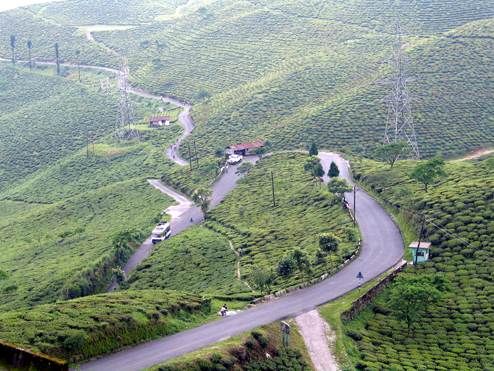CROSSINGS

What would Darjeeling be without its tea? I ask myself as I enter the Makaibari tea garden.
Rajah Banerjee, the tall and lean chairman of the tea company that produces some of the finest and most expensive tea in the world, has just finished rounding the garden on horseback. "By the way, I own two thoroughbreds," the 69-year-old says proudly as he pours us his golden tea.
Banerjee is full of praise for Bengal chief minister Mamata Banerjee for bringing peace to Darjeeling. "We were in a quagmire for 34 years. It was during Marxist rule that militant trade unionism and political uncertainties began in the hills. But the Trinamul chief has restored peace," he tells me.
Darjeeling tea, however, is another story, he concedes. With cheap tea from countries like Nepal flooding both domestic and international markets, this flavourful and premium tea seems to have been in a free fall.
Rajah Banerjee stresses that Darjeeling tea, unlike tea produced elsewhere, is completely organic with high input costs. So, the sale price has to match for any garden to make any profit on its investment.

I find it ironical that at a time when Bengal government advertisements claim the "hills are smiling", a pall of gloom hangs over the 87 tea gardens here that produce about 9.5 million kilos of tea a year.
Sandeep Mukherjee is principal adviser to the Darjeeling Tea Association. We are meeting at the Planters' Club in the heart of the town. The 130-year-old building, once frequented by British planters and army officers, is in the thick of a renovation drive. The dust and din make breathing and conversation difficult.
Expensive Darjeeling tea, for the most part, depends on export for its survival. "It's a premium product," says Mukherjee, adding that 60 to 70 per cent of it is sold in Europe and Japan. "A chunk is also exported to the US, where people are increasingly choosing tea over coffee," says Indranil Ghosh, operations and plantation director of Chamong, another premium Darjeeling tea brand.
An agro-based product, tea is sold largely through auctions, either manually or online. And it is a buyers' market.
Mukherjee accuses a section of domestic distributors and sellers of mixing Darjeeling tea with the cheaper Nepal variety. It's happening internationally too, suppressing the sale price of Darjeeling tea, say planters.
According to Naresh Kumar Pareek, manager of the scenic Tumsong tea estate, Darjeeling's gardens employ 55,000 permanent and 16,000 temporary workers. "We cultivate tea only eight months in a year, but have to pay the workers from December through March when there is no cultivation. That adds to the production costs," he says.
To find out more, I travel to the Happy Valley tea estate on the outskirts, down a narrow, corkscrew of a road staring into an abyss. Happy Valley is anything but happy. Manager Siwaram Pradhan tells me that although the garden is doing reasonably well in terms of production, the overall situation is bleak. For one thing, Darjeeling is a victim of global climate change. This means erratic rains, which hurts tea production.
With a decline in production, French leaves are on the rise. The Happy Valley absentee figure is close to 28 per cent this year. Last year it was 24 per cent. "This is chiefly because of the ongoing government projects that offer more wages," Pradhan says. Also, the tea bushes of Darjeeling have grown old. "Uprooting the old bushes and planting new ones take time. You have to then wait for these bushes to grow."
As I sample the first flush (produced between late March and early May) and second flush (produced between May-end and June-end) at a tea boutique, I find myself in agreement with the planters.
Only a jump in domestic consumption and strict implementation and protection of local intellectual property can save Darjeeling tea. And save it we must.
It is too soon to think of a Darjeeling without its tea.

Debaashish Bhattacharya











